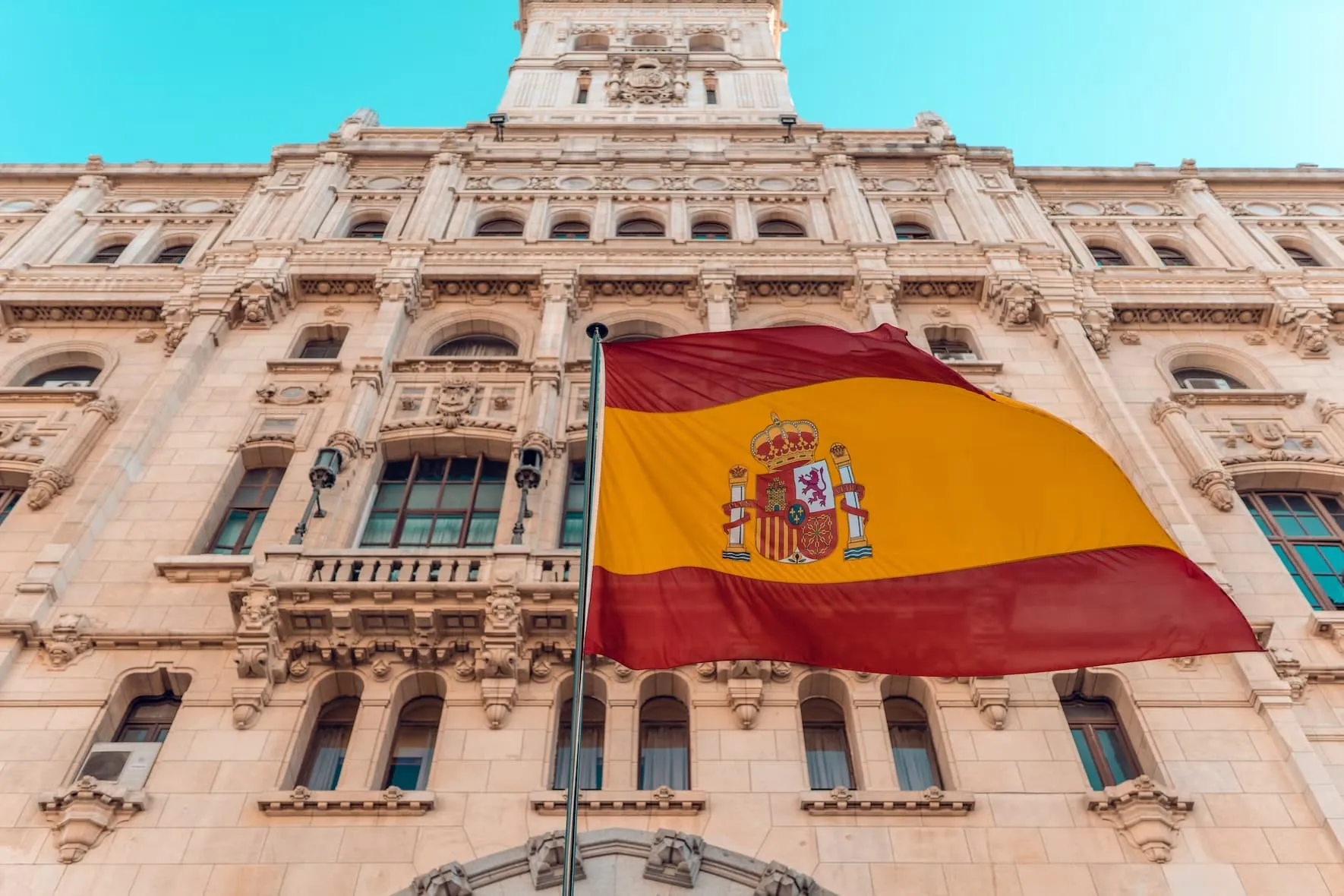Spain Political / Scientific / Religious Short Term Visa
This page provides detailed information about the Schengen short stay visa. This is the visa that must be applied for by applicants who are travelling to Spain for up to 90 days for political or official duties, scientific research purposes or for religious purposes.
We at IAS have a team of experienced and professional immigration experts that can support you with all of your queries and concerns regarding the short term visa. Contact us online or by calling us on (+44) 333 4149244.
Read our 1001 reviews
Request a call back from our immigration experts
Benefits of Choosing IAS‘ Spain Immigration Lawyers
When it comes to obtaining a Spain visa or permit, IAS Spain immigration lawyers are well-equipped to help you.
With IAS’ track record of successfully helping clients visit or immigrate to Ireland successfully, we can help businesses and individuals achieve their goals.
Our dedicated immigration lawyers provide our services through a comprehensive and personalised approach. With IAS, you enjoy:

Expert support from an experienced immigration lawyer dedicated to your success



Support in gathering supporting documents and completing a high-quality application.



Confidence that your case is being handled by an experienced team.



In-house document checks done by lawyers who are accredited by the IBA in Madrid and Seville.
Services we Provide
What is the Spain Political / Scientific / Religious Short Term Visa?
The Spain Political / Scientific / Religious short term visa is the same as the Spanish short stay visa. It is not exclusive to Spain and is part of the Schengen visa group, and so technically you are applying for a standard Schengen visa. It is a Type C visa, (short stay), and you can apply for either a single, double or multiple entry short stay visa.
How Do I Know if I Need to Apply For the Political / Scientific / Religious Visa?
To travel for political, scientific or religious purposes, you must apply for the Schengen short stay visa. The Schengen zone is a political border agreement between 26 European countries that allow, under most circumstances, visa-free access for citizens of the Schengen area. Spain is part of the Schengen zone.
These countries are: Austria, Belgium, the Czech Republic, Denmark, Estonia, Finland, France, Germany, Greece, Hungary, Iceland, Italy, Latvia, Liechtenstein, Lithuania, Luxembourg, Malta, the Netherlands, Norway, Poland, Portugal, Slovakia, Slovenia, Spain, Sweden and Switzerland.
If you are not a citizen of one of these countries, you must obtain the Schengen short term visa before you travel.
Please note that border authorities reserve the right to refuse entry to Spain if there is justifiable cause. Make sure that you are able to provide clear evidence of the purpose of your trip when crossing the border, regardless of your right to travel with or without a visa.
Do I Need to Apply for a Visa if I am a Schengen Zone Passport Holder?
As a member of the EU, you will not need to apply for a Schengen zone visa. Any member states of the EU, EEA or citizens of Switzerland do not need a visa in this instance. Despite not needing to apply for a visa, it is good practice to have proof of your reasons to visit in case of any issues at the border, so carrying documents providing proof that you are travelling for religious, scientific or political purposes is highly advised.
European Countries Excluded from the Schengen Area
Please note that although all the countries that are part of the Schengen area are EU/EEA members, not every EU/EEA member is part of the Schengen zone. The following European nations listed below are not part of the Schengen area, and therefore if you are a national of one of these countries, you are not entitled to travel without a visa for political, religious or scientific purposes and you should apply for the Schengen short term visa:
- Bulgaria
- Croatia
- Cyprus
- Ireland
- Romania.
How Long Does the Short Stay Visa Last?
This visa is valid for 180 days, though expiration dates vary according to whether you require the single, double or multiple entry visa. Despite the visa being valid for 180 days, you are not allowed to spend the full 180 days in Spain – you are allowed a total of 90 days in the country within this timeframe.
If you need to be in Spain for above 90 days, you will need to apply for a Type D visa – the Schengen Long Stay Visa, which requires much the same process as the short stay visa but will require more documentation. If you need to stay in Spain for longer than 180 days, give us a call on (+44) 3333 4149244 or contact us online to learn more.
How Long Does the Short Term Visa Take to Process?
The process usually takes around 15 days, but sometimes could take up to 45 days. Make sure you apply within plenty of time in case any further documents are required, or if you are called in to book an interview.
How do I apply for the Political/Scientific/Religious Visa in Spain if I am not from a Schengen Zone country?
The applicant must be present in person at their local Spanish embassy or consulate, as biometric data is required for the visa. If you are applying from a country without a Spanish consulate, you may be able to apply through the consulate of another Schengen nation.
If you are travelling with a partner, family member, or minor, visa and entry requirements may differ, as well as the sort of documentation you need to present to the consulate. Contact us or give us a call on (+44) 3333 414 9244 for support with how to apply as a group or with a child.


What Documents Do I Need to Apply for the Political / Scientific / Religious Visa in Spain?
1. A Valid Passport and Copies
The passport or travel document must:
- Have at least two blank pages
- Have more than three months validity before its expiration date
- Be less than ten years old
- Be presented with a photocopy of the information page.
If you are approaching the end of your passport validity period, we recommend that you apply for a new one and the new passport be issued before you apply for this visa to avoid any challenges. If, for example, your visa was rejected and you need to appeal the decision, this could take at least a month to process.
2. A Relevant Schengen Visa Application Form
This will either be a short-stay (Type C) or long-stay (Type D) application form. You must fill the application out in its entirety and ensure that you tick the relevant boxes regarding the purpose of your visit. For example, if you are travelling for official duty, you must tick the “Official Visit” box.
3. Two Biometric Pictures
This will be taken at the Spanish consulate or embassy during the application process. However, it is good practice to take a recent passport photograph with you that is no older than six months old to add to the application.
4. Proof of Exiting Spain
You should have a travel document such as a booked return flight ticket, or proof that you will be leaving Spain and travelling on to a different country within the visa validity period.
5. Proof Indicating Reasons for Visit
This could be in the form of a letter written either by the organisation sponsoring you or written yourself, detailing the purpose of your visit and the timeframe that you intend to stay. Try to provide as much detail as possible so that your intentions for visiting are clear, as a vague letter may make the application process longer or more likely to be refused.
You can also include invitations, confirmation of enrolment with an organisation or programme, tickets to events, etc.
6. Proof of Accommodation in Spain
You will need to prove that you will be staying at a particular address during your stay. This can be proven with a confirmation of your hotel or AirBnB booking, or a letter from friends, relatives or other individuals that you are staying with during your trip. If you have organised to rent accommodation, proof of the rental agreement should be presented.
Again, more detail is always better, so if you have booked multiple accommodations over the course of your stay, present evidence for each accommodation.
7. Medical Insurance
Medical insurance that allows a minimum of €30,000 worth of expenses must be obtained before you apply for a short stay visa. It should cover all countries within the Schengen zone.
8. Proof of Funds/Evidence of Employment
You must prove that you have sufficient funds for the duration of your stay. The consulate will want proof that you have around at least €75 per day to spend. You can show evidence of this with bank or credit card statements, or a recent paycheck from your employer.
How much does the Political / Scientific / Religious Visa Cost?
In certain circumstances, for example travel for purposes of scientific research, the applicant may be exempt from payment.
The standard consular fee for the short stay visa is as follows:
| Adults and children over 12 | €80 |
| Children aged 6-12 | €40 |
| Children under 6 | Free |
Although, prices may vary according to which country you are applying from, and additional fees could be charged.
There is not an option to pay for priority processing of your application so you need to make sure you apply in good time. It is best not to make any travel arrangements before you have the correct travel documents in place.
What You Need To Do If Your Short Stay Visa Is Refused
Sometimes, people experience visa application refusals, and usually they are for reasonable circumstances. However, sometimes the applicant has a right to appeal the decision for refusal.
If you need to appeal your visa refusal, it is recommended that you do so with the support of a legal advisor. At IAS, we have a team of experienced lawyers that can help you with the process. Contact us today for support with your appeal.
To apply for an appeal, you will need to present the following:
- Your passport or a copy of the information page
- The refusal letter
- A cover letter explaining your reasons for appealing the refusal
- Your residence permit in the country of residence
- Your address and contact details
- An SAE (stamped addressed envelope).
How can IAS Help?
Obtaining a visa for the purpose of travel related to politics, science or religion could pose a real challenge due to the complicated and ever changing nature of these fields of work. You may work for an organisation with a precarious relationship with Spain, or perhaps you just aren’t sure whether your reasons for travelling fully qualify for the purposes of the visa.
Applying through IAS and working through your application together means that your chances of approval will be higher, and if there are concerns regarding your likelihood of obtaining the visa, you will be working with immigration experts that can help support you through what happens next.
We are here to help you. Give us a call today on (+44) 3333 4149244 or contact us online.
Table of Contents
Table of Contents will appear here.Legal Disclaimer
The information provided is for general informational purposes only and does not constitute legal advice. While we make every effort to ensure accuracy, the law may change, and the information may not reflect the most current legal developments. No warranty is given regarding the accuracy or completeness of the information, and we do not accept liability in such cases. We recommend consulting with a qualified lawyer at Immigration Advice Service before making any decisions based on the content provided.
Frequently Asked Questions
Yes. Ireland is one of the few European countries that is not part of the Schengen zone, along with Bulgaria, Croatia, Cyprus, and Romania. Therefore an application for a Schengen short stay visa must be made if you are a national of any of these countries.
The UK is no longer part of the European Union since Brexit and was never part of the Schengen area, and therefore a short stay visa must be applied for.
Yes, if the applicant is a national from the United States and wishes to travel for scientific, religious or political purposes, they should apply for a Schengen visa. United States citizens are only exempt from the Schengen visa application if they are travelling for tourism or business purposes.
Yes, you need to provide evidence that you have medical and travel insurance worth at least €30,000 of coverage across the whole Schengen area.
Yes, they are the same thing. If you are travelling for political, scientific or religious reasons, this must be clear in your application form and in your documents detailing your reasons for visiting.Yes, they are the same thing. If you are travelling for political, scientific or religious reasons, this must be clear in your application form and in your documents detailing your reasons for visiting.


What our clients are saying
How our UK Immigration Lawyers can help
At the Immigration Advice Service our lawyers specialise in a wide range of UK visas, nationality and asylum applications and have represented clients in various successful complex and high-profile cases.















